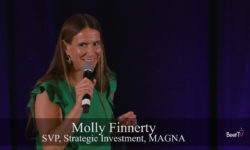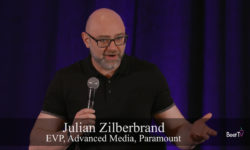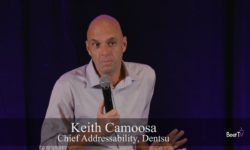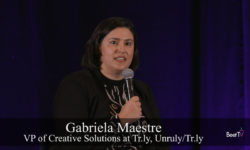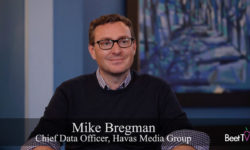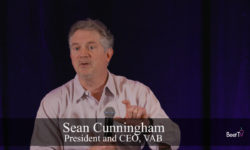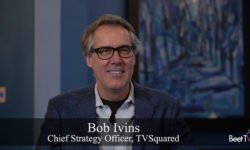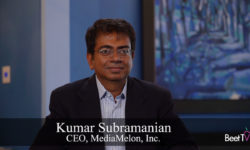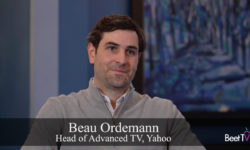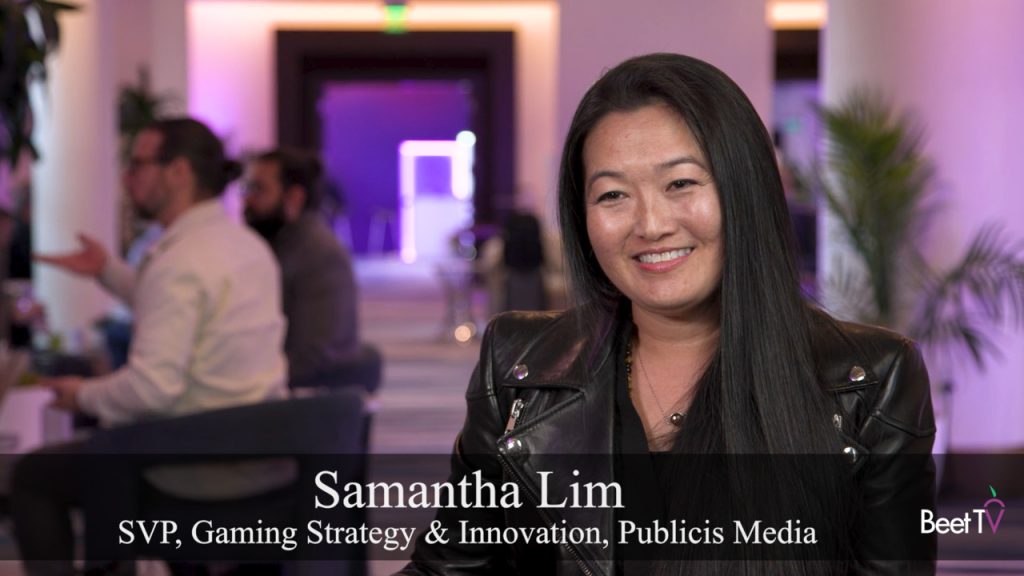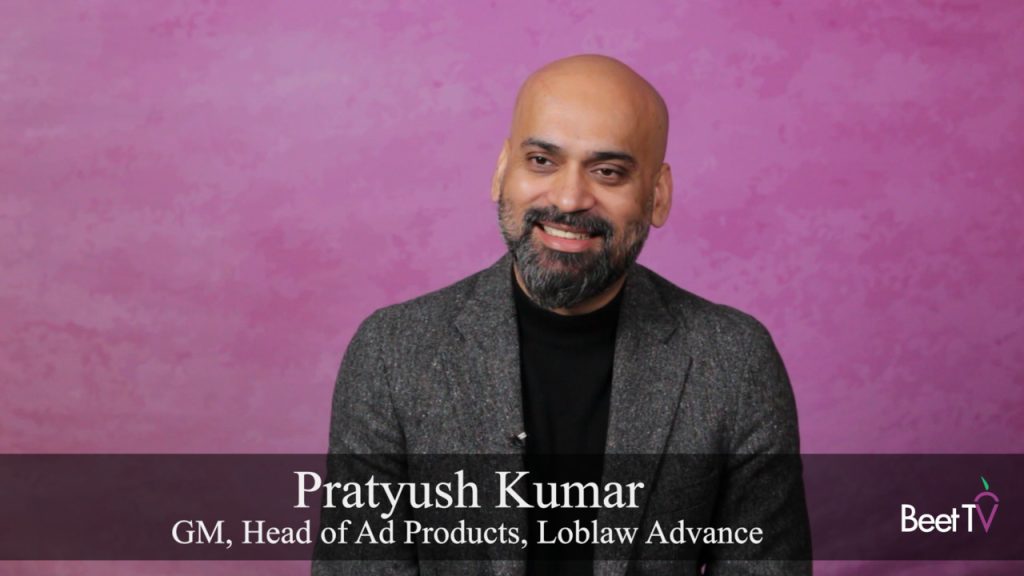SAN JUAN, Puerto Rico – Over decades, TV evolved to rely on a 30-second ad model.
But, for the new breed of platform operators that own the underlying screen operating system, the opportunities are broader than that.
In this video interview with Beet.TV’s Robert Williams at Beet Retreat San Juan, Rachel Helfman, Head of Creative Ad Solutions, Roku, explains why she sees more creative possibilities.
Brand Studio rising
Life After 30 Seconds: Roku’s Helfman Beckons The Future Of TV Ads
Last year, Roku launched Roku Brand Studio, a team helping produce new creative ad formats and programming tailored to the device.
The unit took a number of branded-content creators from Funny Or Die Branded Entertainment.
Among those professionals was Chris Bruss, the former president of digital content at Funny or Die who now leads the Roku Brand Studio.
The group specializes in creating content that can range from short-form spots to long-form shows that showcase brands. Roku’s research found that a branded experience can lead to consumer purchase intent that’s four times as much as for a 30-second spot.
New-format fever
For Helfman, it’s about finding new ways to present ads.
“I think it’s very important to go beyond the 30-second spot,” she says. “The best creative is going to meet the streamer where they are in their journey.
“Branded content shouldn’t just live in an ad pod by itself. Branded content should be a sponsored segment in an original show. It should be an integration into a piece of content that a streamer has opted in for.
“There’s so many ways to organically weave branded content into Roku’s IP that is really lifting favorability and consideration for our advertisers with our audience.
“The traditional spot, of course, it’s been fantastic. We’ve all seen success with that. But we can resonate a little deeper with our viewers now with this capability.”
All-screen inventory
Roku Brand Studio is trying to offer sponsors more than just video opportunities. After all, by virtue of being a platform operator, Roku owns all its on-screen real estate, the whole OS including EPG and app screens.
“We have banner on the home screen; Roku has a one-third real estate that brands can sponsor,” Helfman boasts.
“We don’t just have to do branded content in a video pod. We can play with our banner, our branded destinations.
“We have the ability to also have interactive overlays on video. So, the best part about Roku is it’s the beauty of TV and the brains of digital.”
Weaving content and sponsorships
One such enablement also serves as a viewer guide to an increasingly overwhelming content landscape.
Last year, Roku introduced Roku Recommends, a weekly show that spotlights hot shows to watch.
“We actually saw at Roku that 54% of our viewers had a hard time choosing what to watch,” Helfman concedes. “That resulted in over 20% of them dropping off.
“We know that that can be debilitating at times when you have so many choices.”
So Roku Brand Studio partnered with Roku’s editorial and originals team to create Roku Recommends.
“It has really solved a consumer need,” Helfman adds. “It was easy to weave advertisers into that through an integration, as I said, or brands can sponsor segments of that show. So, it was a great way to really tie a consumer need to an advertiser need.”
You are watching coverage from Beet Retreat San Juan 2022, presented by AppScience, Infillion, MadHive, SpringServe, Univision & VideoAmp. For more videos, please visit this page.







